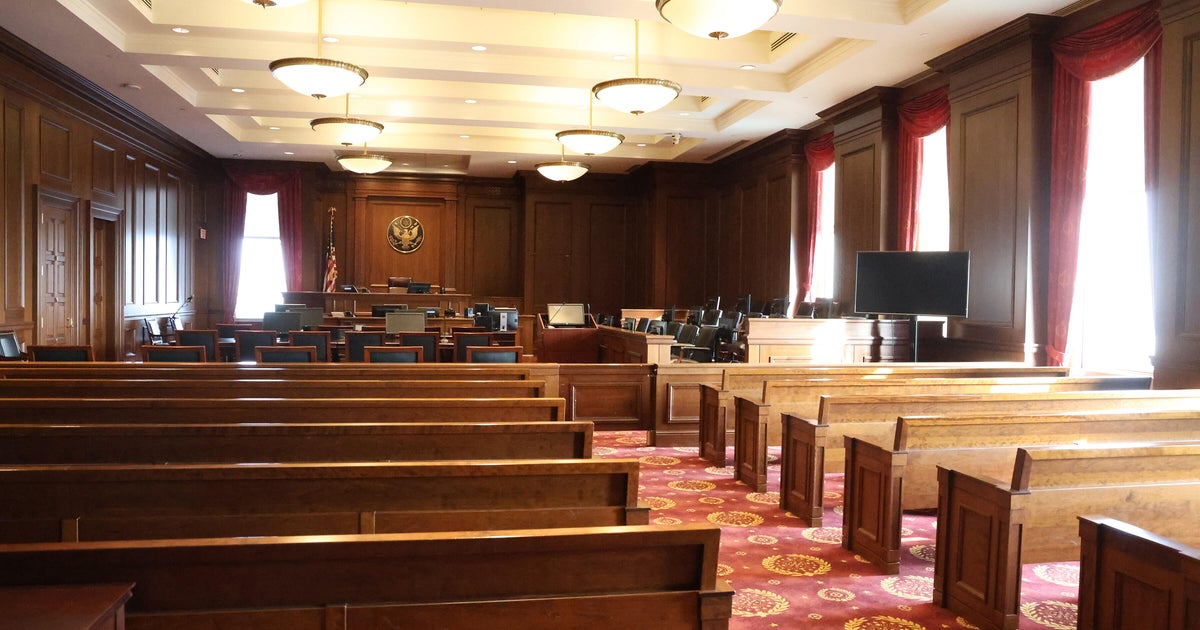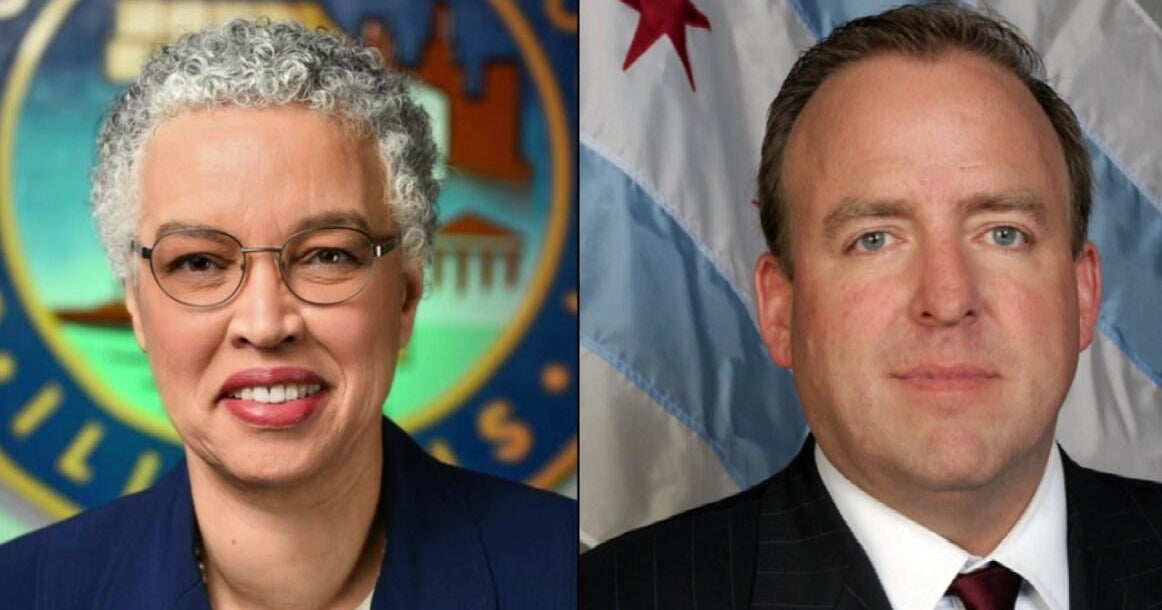California Voter Anger Grows With Budget Stalemate
SACRAMENTO (KCBS / AP) -- Nearly a quarter of the way through California's fiscal year, legislative leaders and Governor Arnold Schwarzenegger still were struggling to end the state's record budget impasse and make long-term reforms.
Lawmakers reported progress after 90 minutes of Monday evening negotiations and planned to continue talks with the governor on Tuesday.
KCBS Doug Sovern Reporting:
After meeting Thursday in Schwarzenegger's private office in Santa Monica, the governor and lawmakers announced what they described as a framework for a potential solution to eliminate a $19 billion budget deficit.
However, Senate Minority Leader Dennis Hollingsworth, R-Murrieta, estimated Monday that they were only about 80 percent to 90 percent of the way toward a final agreement. Senate President Pro Tem Darrell Steinberg, D-Sacramento, said he still hoped for a budget vote next week.
Among the sticking points in closing a deal were Schwarzenegger's demands for tax reforms, budget reforms including creating a rainy day fund, and public pension reforms including rolling back benefit increases approved 11 years ago.
"There are a lot of moving parts that are still getting worked on: pension reform, reductions, budget reform. Believe me, the list is much longer," said Department of Finance spokesman H.D. Palmer.
Steinberg said Democrats were insisting that Schwarzenegger wrestle concessions from public employee unions through collective bargaining before they considered his proposals for legislative changes to the pension system.
Negotiations were expected to continue with the 95,000-member Service Employees International Union, which represents nine of the 15 bargaining units that lack a contract, although no talks were currently scheduled, said Department of Personnel Administration spokeswoman Lynelle Jolley.
"All sides recognize that some pension reform has to take place," said Assembly Minority Leader Martin Garrick, R-Solano Beach, as he left the meeting.
Even if the leaders reach agreement, a budget will require support from two-thirds of lawmakers in the Senate and Assembly.
"I know how frustrated the people are, and understandably so," Steinberg said of the long budget delay.
A new poll backed up Steinberg's assertion regarding voter disapproval. In fact, the record-breaking budget stalemate made California voters even angrier than usual at the people leading the state.
Only 10% of respondents in a recent Field Poll approved of the legislature's job performance. 80% disapproved. Both figures were all-time lows results.
Just 23% of respondents approved of Governor Schwarzenegger's performance in office, his second worst score ever.
"The largest proportion actually volunteered that everyone is to blame," explained the poll's director, Mark DiCamillo. "That the democrats in the legislature, republicans in the legislature, and the governor are all to blame equally."
DiCamillo said respondents viewed members of the legislature and Gov. Schwarzenegger in equally unfavorably light because they viewed the state of California, as a whole, in an unfavorable light.
"Obviously both are suffering from the delays in passing a budget, but also just because of the general state of the California budget situation and the state of finances in California generally," reasoned DiCamillo.
Specifically, the poll revealed that only 12% of respondents thought California was on the right track. 81% responded that the state wasn't on the right track, which is the most dismal figure in nearly two decades.
"Looks like there's going to be significant cutbacks to very popular programs, spending areas like education and healthcare and there's a possibility for tax increases as well and voters are in a very down, glum mood about that," DiCamillo explained the link between the budget proposals and the survey results.
"What voters are saying right now is that there's something structurally amiss with the functioning of the state legislature because we're getting lower performance ratings than we've ever seen."
Monday's negotiations were delayed until evening so Schwarzenegger could give a speech on California's climate change efforts to the Commonwealth Club in Santa Clara. He told audience members it should be possible "in the next week" for the state to have both a budget and the reforms he demanded as he prepared to leave office in January.
The state already set a record for the longest budget impasse since the beginning of a fiscal year, meaning schools, counties and thousands of state contractors were not getting paid.
The situation was about to get marginally worse 90 days into the fiscal year that began July 1, Palmer said. Starting Friday, commercial lenders could cut off the state's credit card, known as CalCard, for lack of payment. Among other things, it would mean the Department of Parks and Recreation may not be able to buy restroom and other supplies.
"Purchases like toilet paper in remote rural parks become a problem," Palmer said. It won't be an immediate issue at parks in more urban areas that stockpiled supplies, he said.
More than 2,500 children would be without day care Wednesday as one of California's largest state-funded child development agencies said it would close its 41 San Francisco-area centers in a one-day protest. Kidango Inc., which catered to children through age 12, planned to join 10 other agencies in a march and rally with employees, parents and children in Fremont.
Most of the other child care agencies planned to stay at least partly open, but Kidango hadn't been paid since July 1 and its credit and reserves were running low, said spokeswoman Camille Llanes-Fontanilla.
"We decided a few weeks ago to take some drastic action," she said. "Cash flow has been a huge problem for us this year."
The California Department of Transportation said last week that it was forced to halt $3.9 billion in funding for new projects over the past two months. If the stalemate continued, CalTrans spokesman Matt Rocco said the state may halt payments on another $9.5 billion worth of projects that were already under way.
The state treasurer's office was negotiating with banks for a short-term loan of about $5 billion to be issued immediately after a budget was signed, said spokesman Joe DeAnda. The short-term borrowing would be replaced with a longer-term loan of about $10 billion about a month after the budget takes effect, he said.
Without a budget, state Controller John Chiang said a lack of money may force the state to begin issuing IOUs early next month, as it did last year for just the second time since the Great Depression. He had estimated IOUs would begin in mid-September, but the government reported higher revenue and lower spending in August than had been expected.
Budget negotiators were counting on that trend continuing as they worked to close the $19 billion gap. They settled on about $7.5 billion in cuts, though aides would not say what programs would be affected.
Additional money would come from selling state office buildings, delaying a corporate tax break, and anticipating more federal aid.
(© 2010 CBS Broadcasting Inc. All Rights Reserved. This material may not be published, broadcast, rewritten, or redistributed. The Associated Press contributed to this report.)







